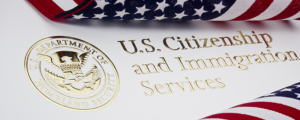 Since the 19th Century, U.S. Immigration laws have sought to bar entry to immigrants who are likely to become “public charges.” In more recent times, that term has been defined as individuals who are likely to need means-tested public benefits, such as welfare and SNAP benefits. Until last year, the showing that a green card applicant was not likely to become a public charge was met by the submission of an Affidavit of Support by a family member. That Affidavit showed that the family member had sufficient income (defined as 125% of the poverty level) to make it unlikely that the intending immigrant would need public assistance.
Since the 19th Century, U.S. Immigration laws have sought to bar entry to immigrants who are likely to become “public charges.” In more recent times, that term has been defined as individuals who are likely to need means-tested public benefits, such as welfare and SNAP benefits. Until last year, the showing that a green card applicant was not likely to become a public charge was met by the submission of an Affidavit of Support by a family member. That Affidavit showed that the family member had sufficient income (defined as 125% of the poverty level) to make it unlikely that the intending immigrant would need public assistance.
The Trump Administration changed that. After several rounds of litigation, their revised public charge rule went into effect in October, 2020. That rule required the submission of an additional form (Declaration of Self-Sufficiency) and proof of sufficient assets, income, education, language skills, health insurance and creditworthiness in order to obtain permanent residence (not citizenship). All of these requirements made it especially difficult for immigrants from developing countries to qualify. It also slowed down the process of filing green card applications because of the amount of documentation required. It seemed that both of those results were intended. Commentators referred to it, not unfairly, as a “wealth test” that many American citizens could not pass.
On March 9, the Biden Administration announced that it was directing USCIS to stop requiring that form and those supporting documents. USCIS posted guidance to that effect on its website the next day. Although some states have declared their intent to mount legal challenges to the rollback of the Trump public charge rule, they are not likely to succeed.
We applaud the Biden Administration’s action to remove this discriminatory rule, which will return the green card process to what is was before the rule was adopted.
Vermont Real Estate Lawyer | Act 250 Lawyer | Permit Law | Environmental Law
Footer






275 College Street, Burlington, VT 05401
Get Directions | Send Us An Email
© MSK Attorneys. All Rights Reserved.
MSK Disclaimer | Website by Earthlogic
© MSK Attorneys. All Rights Reserved.
MSK Disclaimer | Website by Earthlogic
